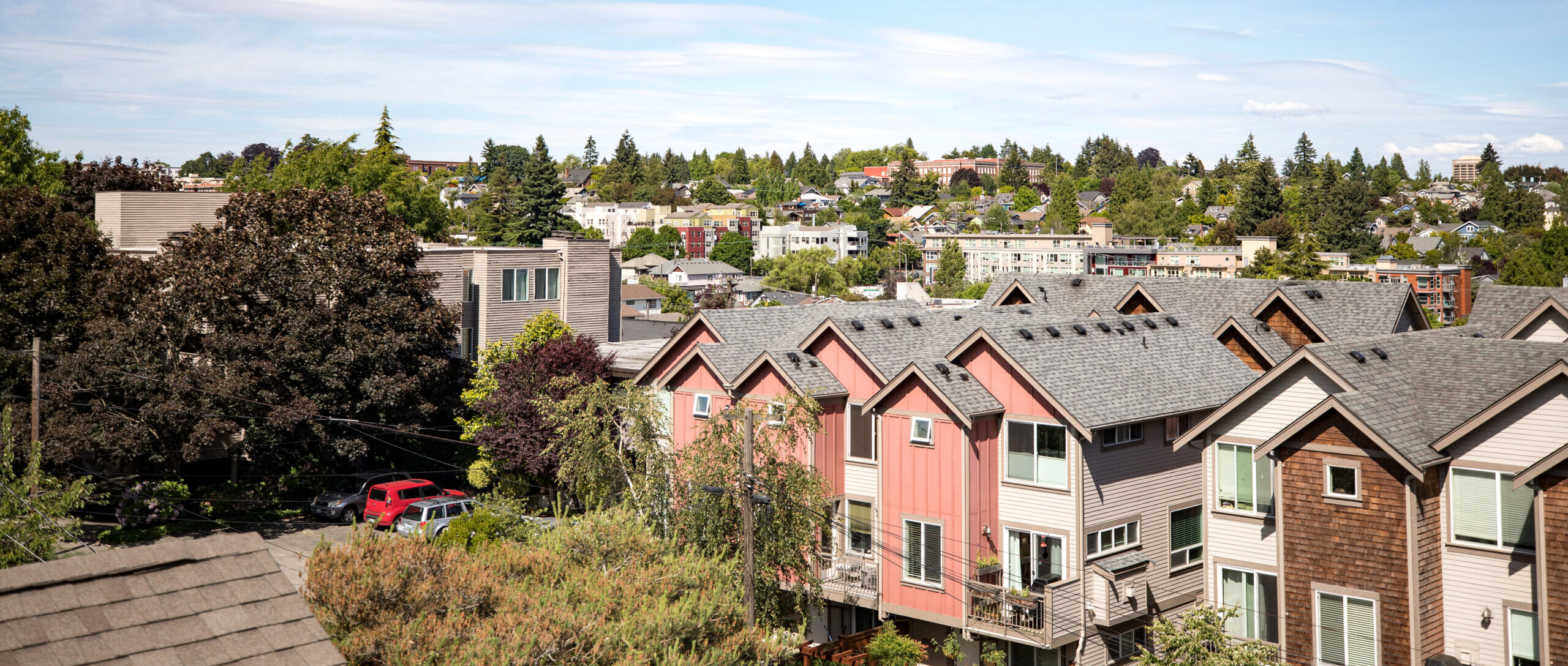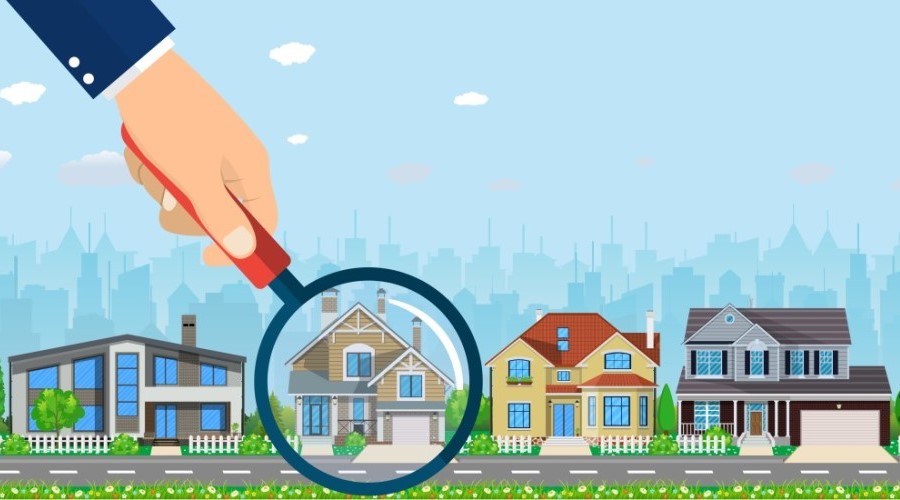This class refers those coming from or having the physical characteristics of any racial group.
Learn more: Race
Color
Color was among the very first 4 safeguarded classes covered by the Fair Housing Act of 1968. There is overlap in between color, race, and national origin, however generally this class refers to the noticeable color of one's skin.

Read More: Color
Religion
Religion was among the very first four secured classes covered by the Fair Housing Act of 1968. People of all religions are protected, including individuals who have no religion.
Find out more: Religion
National Origin
National origin was among the very first four protected classes covered by the Fair Housing Act of 1968. National origin suggests where you are from or viewed to be from. This consists of origins, ethnic background, birthplace, culture, and language.
Learn more: National Origin
Sex or Gender
In 1974 the Fair Housing Act was changed to consist of sex as a secured class. This class safeguards individuals from discrimination based upon biological sex, gender, and gender stereotypes. As of 2020, the Federal Fair Housing act covers sexual preference and gender identity under the protected class of sex.
Find out more: Sex
Disability
In 1988 the Fair Housing Act was modified to consist of disability as a safeguarded class. Disability is specified as "a physical or mental impairment that significantly limits one or more significant life activities."

Read More: Disability
Familial Status
In 1988 the Fair Housing Act was modified to include familial status as a secured class. Familial status covers anybody who has legal custody of children under age 18, is pregnant with a child, or is in the procedure of adopting.The just exception to the familial status defense uses to communities for the senior.
Find out more: Familial Status
Age 55+
For the functions of law, elderliness refers to persons age 55 or older. Elderliness is not a protected class under federal fair housing laws, however, Virginia fair housing law extends protections to those age 55 and up. It is illegal to decline to sell, lease, or work out housing based on elderliness.
Find out more: Age 55 and Up

Source of Funds
Source of funds, or income, became a secured class in the Virginia's fair housing laws on July 1, 2020. Under the Federal Fair Housing act, source of funds is safeguarded due to the disparate impact it has on individuals of color, single moms, and people with specials needs. It is unlawful to discriminate because of any source that lawfully provides funds to or on behalf of a renter or purchaser of housing, consisting of any help, benefit, or subsidy program, whether such program is administered by a governmental or nongovernmental entity.
Learn more: Source of Funds
Military Status
In 2020, military status was contributed to Virginia's fair housing laws. This include active military service members, veterans who served in the active military and who were discharged or released under conditions besides unethical, and relative of active military service members or veterans.
Read More: Military Status

Sexual preference
In 2020, sexual preference was contributed to Virginia's fair housing laws. As of 2020, the Federal Fair Housing act also covers sexual preference under the protected class of sex. It is unlawful to discriminate versus a person for their real or viewed heterosexuality, bisexuality, homosexuality. This consists of discrimination due to someone's physical appearance, quirks, the partner they are with, or any self-identifying signs or flags.
Read More: Sexual Preference
Gender Identity
In 2020, gender identity was added to Virginia's fair housing laws. Since 2020, the Federal Fair Housing act likewise covers gender identity under the safeguarded class of sex. It is prohibited to victimize somebody for their gender-related identity, look, or other gender-related attributes of an individual, with or without regard to the individual's designated sex at birth. This includes discrimination due to somebody's gender non-conforming appearance, their obvious gender not matching their legal identification (motorists license), or any self-identifying signs or flags.
Read More: Gender Identity
Tell HOME About Your Housing Discrimination

What is Fair Housing?
Fair Housing is the idea that all individuals have the right to live where they choose, devoid of discrimination. Fair housing is about embracing diversity and making every effort to produce more powerful communities that are inviting and inclusive. Fair housing is not about giving specific people unique rights, it has to do with making sure everybody has equivalent rights and equivalent access to housing.
In 1968, the Fair Housing Act was passed to secure people from discrimination in housing-related transactions, such as renting a home, obtaining a mortgage, or acquiring house owner's insurance coverage. Under Virginia and federal laws, it's illegal to discriminate against somebody based on their status as a member of the following protected classes: race, color, religious beliefs, national origin, sex, familial status, impairment, those age 55 or older, source of funds, sexual orientation, gender identity, or military status. Everyone comes from several protected classes, so everybody must be safeguarded equally by reasonable housing laws.
The requirements under the reasonable housing laws use to nearly all housing companies, consisting of residential or commercial property supervisors, owners, property owners, property representatives, banks, savings institutions, cooperative credit union, insurance coverage business, mortgage lending institutions, and appraisers.
What is Discrimination?
Discrimination is differential treatment of an individual or a group of individuals based on a certain particular.
Discrimination can have many faces, from outright hateful to courteous however ignorant. It likewise isn't constantly a single person acting versus another, it can also exist in customs, beliefs, policies, ideas, practices, laws, and institutions. Someone may act inequitable even if it was not their intention. No matter how it occurs, the result is that people belonging to specific groups are denied access to chances.
Most housing discrimination has come a long method from neighborhood signs demanding "white renters only." Today, it is frequently subtle, in some cases polite, and can leave individuals confused as to whether their rights were violated. The U.S. Department of Housing and Urban Development (HUD) estimates that more than 2 million instances of housing discrimination happen each year. Unfortunately, less than one percent of those instances are reported. It is necessary to learn what discrimination can appear like in different scenarios to protect your rights, and the rights of others.

Discrimination can take place during the look for housing, such as making an application for a house or buying a home. The result is that a person is omitted from living where they select to and must look in a less preferred area. This involves:
Direct rejection or harassment
False representation of home schedule
Additional application requirements that disqualify or target a particular group of people
Unfair financing or loan qualifications
Steering, or constraints a person's option of housing
Discrimination can likewise take place in an already established living arrangement, such as in a home complex. The result is that an individual may no longer feel welcome or safe and might feel the need to relocate to avoid emotional or physical distress. This includes:
Harassment, intimidation, or browbeating
Differential treatment of occupants
Unfair or unequal conditions
Failure to provide equal access to services and facilities
Neglecting upkeep or lodgings
Disparate effect is when practices or policies that are not made with the intention to discriminate are discovered to trigger housing discrimination. For instance - blanket bans on everyone with any criminal history has a disparate effect on African-American men since of the disproportionate incarceration rates between minorities and non-minorities.
Neighborhood Harassment
Hate crimes versus minorities have actually increased in the U.S. This is undesirable. All of us need to take a stand against xenophobia, bigotry, and discrimination in our neighborhoods. If you have actually experienced bigotry since of your race or national origin in your community or in your look for housing, report it to HOME to investigate and get you help.
You are safeguarded from harassment in your neighborhood. Harassment includes interference, browbeating, risks, or intimidation. Examples can consist of next-door neighbors using racial slurs versus a fellow next-door neighbor, the distribution of hate mail to a minority community, a proprietor verbally abusing an occupant because of their nationwide origin, and more.
Contact HOME if you witness or undergo harassment in your home or neighborhood based upon your secured class.
Download the Neighborhood Harassment flyer: English PDF|Arabic PDF
How We Can Help
You don't have to face discrimination alone. If you have been discriminated against in housing, or if you are unsure if you have, we can assist. Submit a type to our fair housing group and among our consumption organizers will call you to talk about the details. It is essential that you include as much details as possible, so we can help identify the best strategy.
Even if you are not the direct victim of discrimination, we still want to find out about it! If you have actually become aware of discriminatory practices occurring, call us with as much details as possible so we can examine.
How You Can Help
HOME depends on the work of trustworthy, social conscious testers to reveal instances of housing discrimination. If you are interested in helping us uphold reasonable housing in your community, please consider becoming one of HOME's testers.








